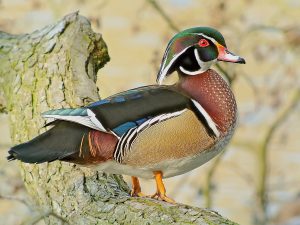The Benefits of Ethical Hunting for Conservation
Hunting for Conservation?
- President Theodore Roosevelt an avid hunter, conservationist, and naturalist was by far the most environmentally friendly U.S. President. During his two term tenure the 26th President amassed a titanic environmental legacy that brought environmental issues to the heart of politics and American society. From behind the Resolute Desk Roosevelt protected 230 million acres of public land; including 150 million acres of National Forests, 51 Wildlife Refuges, and protected 23 areas that are now National Parks (National Park Service, 2017).
- President T. Roosevelt wrote in his book, Outdoor Pastimes of the American Hunter, about the benefits to Conservation hunting provides.
-
“In a civilized and cultivated country, wild animals only continue to exist at all when preserved by sportsmen. The excellent people who protest against all hunting, and consider sportsmen as enemies of wildlife, are wholly ignorant of the fact that in reality the genuine sportsman is by all odds the most important factor in keeping wild creatures from total extermination” (Roosevelt, 1905).
Case Study: Wood Duck
- One of the greatest Conservation success stories is that of the the Migratory Bird Treaty Act of 1918 between the United States, Canada, Mexico, Japan, and Russia. This treaty continues to help protect 1,000’s of species of migratory birds such as songbirds and waterfowl, and is “credited with saving numerous other species from extinction including the Wood Duck” (Audubon Society, 2017). Before the MBTA was ratified in 1918 the “Wood Duck population declined to alarmingly low levels (…) and had virtually disappeared from much of their former range” (USDA). Through regulated hunting and a management plan created through Engaged Pluralism migratory waterfowl such as Wood Duck’s were able to rebound significantly in the century after the MBTA was signed.
- Since the implementation of the Duck Stamp in 1934, a required purchase for waterfowl hunters, over 1 billion dollars in revenue have been collected and 6 million acres of wetland and other habitat has been protected for migratory birds (USFWS, 2018). In order for the immense monetary support for Conservation programs to continue the number of sportsmen and women need to remain steady. Unfortunately this is not the case due to shifting viewpoints and values the number of waterfowl hunters “declined from 2.2 million in 1975 to 1.3 million in 1985” (Enck et. al, 1993) and these numbers have continued to decline to just below 1 million hunters in 2015 (Watt, 2017). The Conservation and societal benefits that hunting provides should be discussed more in our media, management decisions, and society as a whole to better protect our precious wild-lands and wildlife against the threats of climate change and habitat loss.
Works Cited:
“Hunting.” Hunters as Conservationists | U.S. Fish and Wildlife Service, www.fws.gov/refuges/hunting/hunters-as-conservationists/.
“Theodore Roosevelt and Conservation.” National Parks Service, U.S. Department of the Interior, www.nps.gov/thro/learn/historyculture/theodore-roosevelt-and-conservation.htm.
“A Look Back at America’s Most Influential Hunters and the Books That Tell Their Stories.” MeatEater Hunting, www.themeateater.com/hunt/general/a-look-back-at-americas-most-influential-hunters-and-the-books-that-tell-their-stories.
“Secretary Zinke Announces More Than $1.1 Billion for Sportsmen & Conservation.” U.S. Department of the Interior, 20 Mar. 2018, www.doi.gov/pressreleases/secretary-zinke-announces-more-that-11-billion-sportsmen-conservation.
Rott, Nathan. “Decline In Hunters Threatens How U.S. Pays For Conservation.” NPR, NPR, 20 Mar. 2018, www.npr.org/2018/03/20/593001800/decline-in-hunters-threatens-how-u-s-pays-for-conservation.
Enck, Jody W., et al. “Reasons for Decline in Duck Hunting: Insights from New York.” Wildlife Society Bulletin (1973-2006), vol. 21, no. 1, 1993, pp. 10–21. JSTOR, www.jstor.org/stable/3783355.
Watt , Paul. “Looming Crisis .” Delta Waterfowl , 2017, deltawaterfowl.org/wp-content/uploads/2017/03/LoomingCrisis.pdf.
